Effective Home Remedies to Unclog Your Kitchen Sink - Restore Drainage Easily
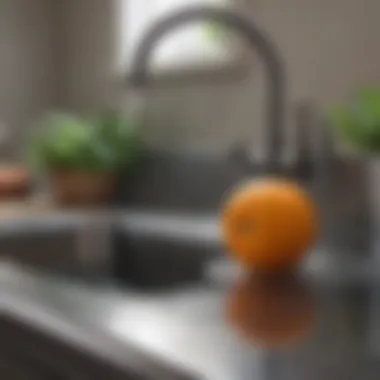
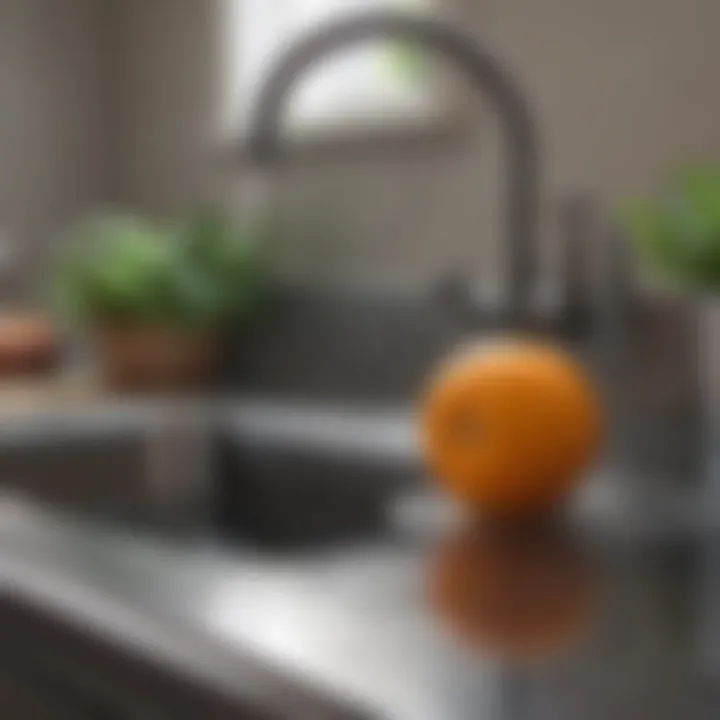
Inspiring Homes
When it comes to clogged kitchen sinks, finding effective home remedies becomes crucial to maintaining a functional household. The intricate network of pipes beneath the sink often falls victim to debris buildup, leading to frustrating drainage issues. Understanding how to tackle this common problem can save time, money, and the hassle of seeking professional assistance. In this detailed guide, we will explore a range of practical and efficient methods using natural ingredients and DIY techniques to unclog your kitchen sink effortlessly.
Natural Ingredients for Unclogging
One of the most accessible ways to tackle a clogged kitchen sink is by leveraging the power of natural ingredients found in your pantry. Ingredients such as baking soda, vinegar, and lemon are adept at breaking down grease, grime, and food residues that cause blockages in your sink's pipes. By combining these household staples in specific ratios and allowing them to react, you can create a potent solution that helps dissolve obstructions and clear the passageway for smooth drainage. Furthermore, the environmentally-friendly nature of these ingredients ensures a non-toxic unclogging process.
DIY Techniques for Clearing Blockages
Beyond natural ingredients, various DIY techniques can aid in dislodging stubborn clogs and restoring proper flow in your kitchen sink. Whether it's using a plunger to create hydraulic pressure, fashioning a homemade drain snake from wire or cable to physically remove debris, or even employing wet and dry vacuum suction to pull out blockages, there are several innovative ways to address the issue without professional intervention. Understanding the mechanics of each technique and implementing them correctly is essential to achieving optimal results and preventing future clogs.
Embracing Sustainable Solutions
In a world moving towards sustainability and eco-conscious practices, adopting home remedies for unclogging your kitchen sink aligns with a greener lifestyle. By minimizing reliance on harsh chemicals typically found in commercial drain cleaners, you not only protect the environment but also safeguard your household plumbing from potential damage. Through the utilization of readily available natural ingredients and DIY methods, you contribute to a more sustainable approach to home maintenance while reaping the benefits of cost-effective and efficient solutions.
Introduction
In the realm of domestic maintenance and upkeep, the kitchen sink plays a pivotal role, acting as a hub for various culinary activities. It is imperative to ensure the smooth functioning of this essential fixture to maintain a seamless workflow in the kitchen. However, over time, kitchen sinks are prone to clogs due to the accumulation of food particles, grease, and other debris. These clogs can lead to slow drainage, foul odors, and even complete blockages, disrupting day-to-day operations in the kitchen.
Addressing and resolving kitchen sink clogs promptly is crucial to prevent these issues from escalating and causing further inconvenience. In this article, we will delve into a plethora of effective home remedies designed to help you unclog your kitchen sink without the need for professional intervention. By exploring natural ingredients and do-it-yourself techniques, you will acquire the knowledge and skills necessary to tackle this common household problem efficiently and restore optimal drainage in your kitchen sink.
From simple yet powerful solutions like the baking soda and vinegar method to more unconventional approaches such as the wire hanger technique, we will provide you with a comprehensive guide to combating kitchen sink clogs. By following the tips and techniques outlined in this article, you can bid farewell to sluggish drainage and reclaim the functionality of your kitchen sink, ensuring a smoothly operating culinary workspace.
Understanding the Issue
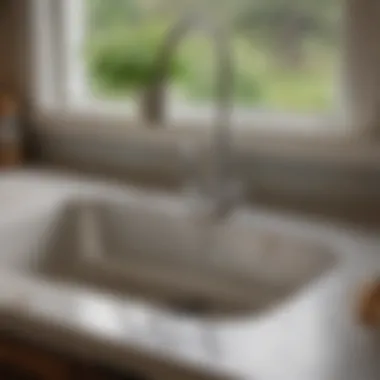
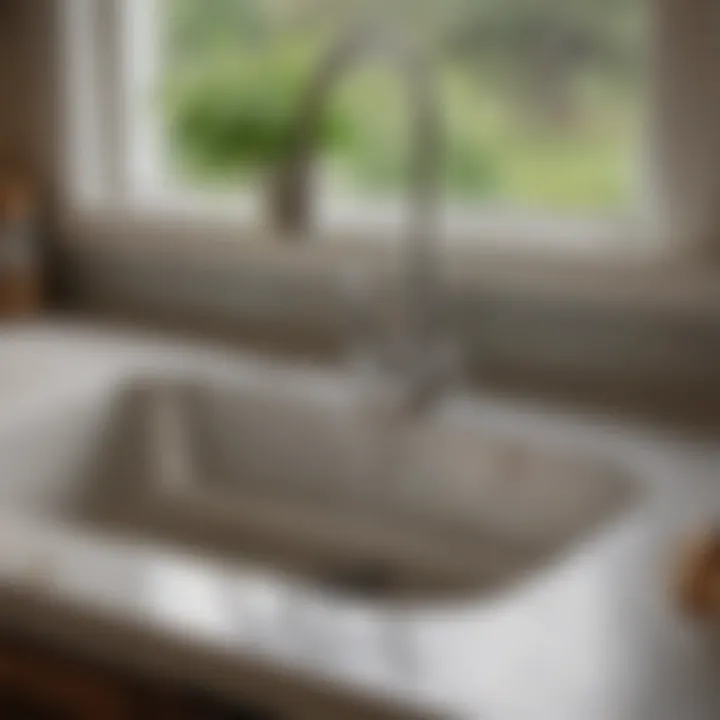
When it comes to addressing clogged kitchen sinks, understanding the underlying problems is crucial. By grasping the nuances of common causes and recognizing the signs of a clogged sink, you equip yourself with the knowledge required to effectively resolve the issue. This article aims to shed light on these essential aspects, offering practical insights and solutions for tackling kitchen sink clogs.
Common Causes of Kitchen Sink Clogs
Kitchen sink clogs can stem from various sources, ranging from food debris and grease buildup to foreign objects lodged in the drain pipes. Food particles that accumulate over time can congeal with grease, leading to stubborn blockages. Additionally, improper disposal of coffee grounds, pasta, or oil can contribute to the formation of clogs. Understanding these common causes is key to preventing future blockages and maintaining optimal sink functionality.
Signs of a Clogged Kitchen Sink
Recognizing the signs of a clogged kitchen sink is essential for prompt intervention. Slow drainage, water backup, and unpleasant odors emanating from the sink are indicative of underlying blockages. Moreover, gurgling sounds during drainage or visible water pooling in the sink are red flags that warrant immediate attention. By being alert to these signs, you can address clogs before they escalate, ensuring smooth water flow in your kitchen sink.
Home Remedies
In exploring effective home remedies to address kitchen sink clogs, we shed light on practical and efficient solutions that can be implemented without the need for professional intervention. These remedies offer a cost-effective and convenient way to tackle the common issue of sink blockages, promoting smooth drainage and household functionality.
1. Baking Soda and Vinegar Solution
One popular method for clearing kitchen sink blockages is the utilization of a baking soda and vinegar solution. By combining these two common household items, a chemical reaction occurs that can help break down the clog and clear the pipes. The bubbling action generated by the mixture can dislodge debris and sediment that may be causing the obstruction in the sink. Following this simple DIY technique allows for a natural and eco-friendly approach to unclogging your kitchen sink.
2. Boiling Water Method
Another straightforward yet effective remedy involves using boiling water to flush out clogs in the kitchen sink. The hot water can help dissolve grease buildup and loosen substances clinging to the pipes, facilitating the removal of blockages. This method is especially useful for minor clogs and can serve as a preventive measure to maintain smooth drainage in your sink. However, caution must be exercised to avoid potential damage to PVC pipes or fittings due to the high temperature of the water.
3. Wire Hanger Technique
For more stubborn or deep-seated clogs, the wire hanger technique can be a practical solution. By straightening out a wire hanger and creating a hook at one end, you can maneuver it down the drain to dislodge accumulated debris. This method allows you to physically remove blockages that may be out of reach for liquid solutions, providing a hands-on approach to clearing your kitchen sink. Care should be taken to avoid causing damage to the pipes while attempting this method.


4. Using a Plunger
Utilizing a plunger is a tried and true method for unclogging various drainages, including kitchen sinks. By creating a seal around the drain opening and exerting pressure through plunging, you can dislodge and push through blockages in the pipe. This technique is effective for both minor and moderate clogs, offering a simple yet efficient way to restore proper water flow in the sink. Proper technique and repeated plunging may be necessary for more stubborn obstructions.
5. Salt and Hot Water Combination
A combination of salt and hot water can also serve as a remedy for kitchen sink clogs. The coarse texture of salt can help scrub away debris clinging to the pipes, while the hot water aids in flushing out loosened particles. This method acts as a natural and affordable alternative to chemical drain cleaners, providing a gentle yet effective way to tackle minor blockages. Regular application of this mixture can contribute to maintaining a clear and functional kitchen sink.
6. Lemon and Hot Water Flush
Ending on a refreshing note, the lemon and hot water flush is another home remedy for unclogging kitchen sinks. By squeezing lemon juice into hot water and pouring it down the drain, you can introduce acidity and freshness that may help break down organic matter causing the obstruction. This method not only aids in clearing clogs but also leaves behind a pleasant citrus scent in your kitchen. Incorporating this aromatic solution into your regular sink maintenance routine can enhance both functionality and ambiance in the kitchen.
Preventive Measures
When it comes to dealing with kitchen sink clogs, taking preventive measures can save you a lot of hassle in the long run. Proper maintenance of your kitchen sink is key to avoiding blockages. By being mindful of what goes down the drain and implementing simple practices, you can prevent clogs and ensure smooth drainage at all times.
One vital preventive measure is to refrain from disposing of grease or oil down the sink. Grease tends to solidify and can easily cause obstructions in the pipes over time. Instead, collect grease in a separate container and dispose of it properly. Additionally, using a drain strainer can help catch food particles and prevent them from accumulating in the pipes.
Regularly running hot water down the sink can also help prevent clogs by clearing away any build-up of grease or soap scum. Furthermore, avoiding putting large quantities of food scraps down the garbage disposal can go a long way in maintaining a clear drain system. By adopting these preventive measures, you can reduce the likelihood of facing a clogged kitchen sink.
Maintaining Proper Sink Usage
Maintaining proper sink usage is essential in preventing kitchen sink clogs. One of the primary aspects of proper sink maintenance is being mindful of what you allow into the drain. Avoid pouring substances like coffee grounds, eggshells, or starchy foods like pasta down the sink, as these can easily lead to blockages.
Another key aspect of maintaining proper sink usage is to run cold water while using the garbage disposal. Cold water helps solidify any grease or oils, making it easier for the disposal to break them down. Additionally, refraining from overloading the disposal with large quantities of food at once can prevent it from getting overwhelmed and causing a blockage.
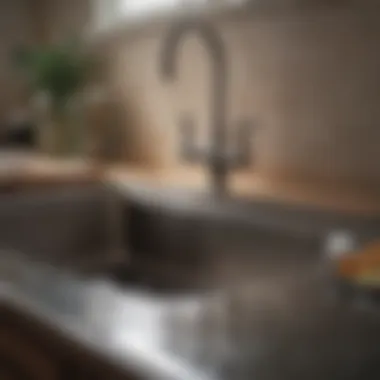
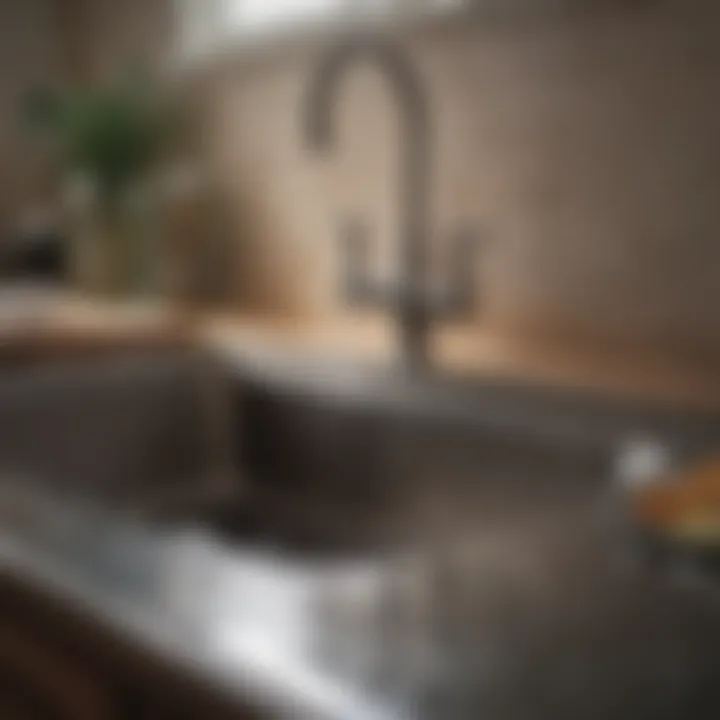
Regularly flushing the drain with a mixture of hot water and vinegar can help break down any build-up and keep the pipes clear. By adhering to these practices, you can ensure that your kitchen sink remains free from clogs and functions smoothly.
Regular Cleaning Practices
In addition to avoiding clogs, regular cleaning practices are crucial for maintaining a healthy kitchen sink. One effective method is to periodically clean the garbage disposal by grinding ice cubes and citrus peels. This helps eliminate any odors and keeps the disposal running efficiently.
Using baking soda and vinegar to clean the drain can also help remove any lingering debris and keep the pipes clear. Simply pour a mixture of baking soda and vinegar down the drain, let it sit for a while, and then flush it with hot water.
Furthermore, checking the sink stopper for any build-up of hair or gunk and cleaning it regularly can prevent potential blockages. By integrating these regular cleaning practices into your kitchen sink maintenance routine, you can increase the longevity of your plumbing system and ensure smooth drainage.
When to Seek Professional Help
When you are faced with a stubborn and persistent kitchen sink clog that resists all DIY remedies, it may be time to seek professional help. While home remedies are effective for minor clogs, some situations necessitate the expertise of a professional plumber, ensuring the issue is resolved thoroughly.
Identifying the right moment to call in a professional is crucial to prevent further damage to your plumbing system. If you notice recurring clogs despite trying various DIY methods or if water is backing up in multiple drains, it signifies a more significant underlying problem that requires professional attention.
The benefits of seeking professional help include identifying the root cause of the clog, which is essential in preventing future blockages. Plumbers have specialized tools and equipment to investigate complex clogs deep within your pipes, ensuring a lasting solution to your drainage issues.
Furthermore, professional plumbers are trained to handle various types of clogs, whether caused by grease buildup, foreign objects, or tree roots intruding into your main sewer line. Their expertise allows for a thorough diagnosis and effective resolution of even the most challenging clogs.
When considering professional help, it is essential to weigh the cost against the potential damage of unresolved issues. Ignoring persistent clogs can lead to water damage, mold growth, foul odors, and even structural damage to your property. Calling a professional at the right time can save you money in the long run by preventing costly repairs.
Conclusion
One of the key takeaways from our exploration of home remedies is the empowerment it provides to homeowners; enabling them to resolve such issues independently without the immediate need for professional intervention. This not only saves time and money but also cultivates a sense of self-sufficiency and skill in managing household maintenance.
Moreover, the insights shared in this article shed light on the environmental benefits of utilizing natural solutions like baking soda, vinegar, lemon, and salt to unclog drains. By opting for these eco-friendly alternatives, individuals contribute to sustainable practices within their living spaces, aligning with a growing global trend towards green living.
Considerations about the preventive measures discussed earlier also emphasize the importance of regular upkeep and proper sink maintenance in preventing future clogs. By incorporating these simple practices into daily routines, homeowners can prolong the lifespan of their plumbing systems and ensure continued efficient drainage in their kitchens.
In essence, this conclusion consolidates the key aspects of our discussion, emphasizing the practicality, environmental consciousness, and long-term benefits of adopting home remedies for kitchen sink clogs. By integrating these insights into their household management practices, readers can enhance both the functionality of their sinks and their overall commitment to sustainable living.



